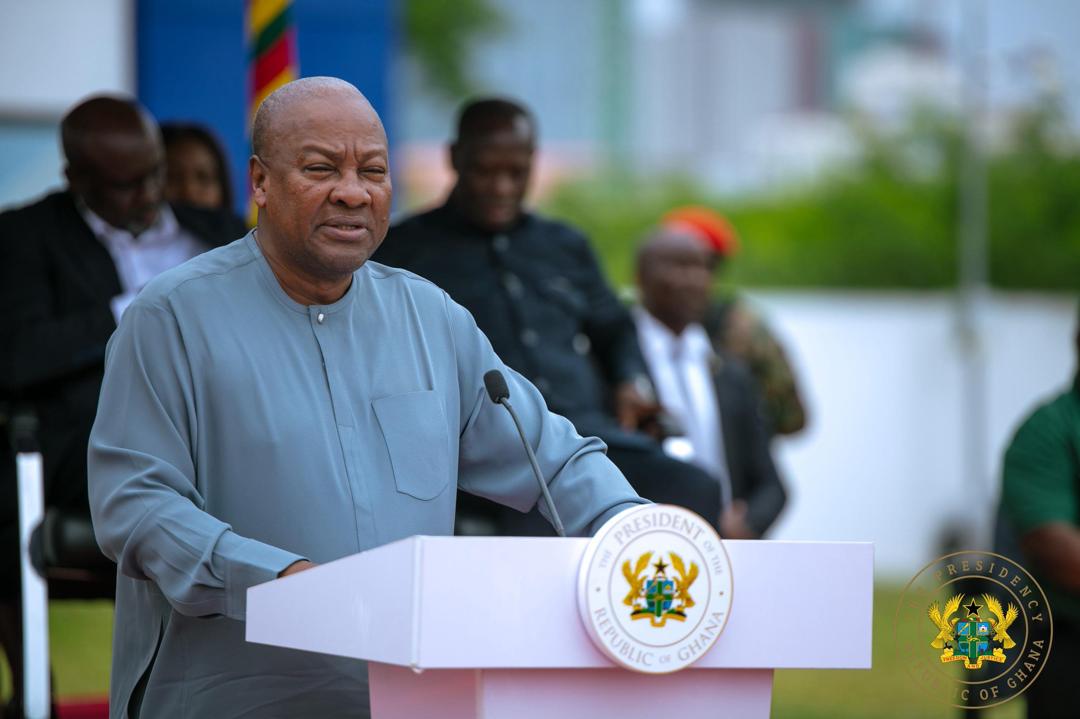
Ghanaian President John Dramani Mahama has officially inaugurated a Gold Board Task Force, a high-level initiative designed to bolster transparency, sovereignty, and security in the country’s gold sector.
The task force will operate under the authority of the newly created Ghana Gold Board (Goldbod), with sweeping powers to enforce new regulations, monitor trade, and clamp down on smuggling and illegal mining operations.
Speaking at the launch event on Tuesday, President Mahama emphasized that the task force marks a fundamental shift in the country’s approach to managing its mineral wealth.
“Through Goldbod, we reaffirm our sovereignty over national mineral resources and initiate a paradigm shift: moving from raw extraction to the creation of added value,” he declared.
Under Act 1140, passed earlier this year, Goldbod is now the sole body authorized to purchase and export gold produced in Ghana—excluding output from large-scale industrial mining companies.
The legislation aims to plug revenue leaks and ensure greater local benefit from the country’s vast mineral reserves.
Mahama described the new task force not merely as a policing unit but as “a strategic instrument of national economic transformation, designed to restore the integrity, transparency and value of the Ghanaian gold sector.”
Issuing a stern warning to illegal operators, he added, “This is a clear message to all those involved in gold smuggling and illegal trade: the law will be enforced without fear or favor.”
To incentivize public cooperation, the government announced a 10% reward on any gold or cash recovered as a result of information leading to an arrest.
Meanwhile, task force members have been cautioned against overreach or corruption.
“Anyone who transgresses their mandate will be subject to severe sanctions, including dismissal, prosecution and loss of rights,” Mahama said.
Penalties outlined in the Goldbod Act include fines of up to 2.4 million Ghanaian cedis and prison terms ranging from five to ten years.
The law also bans unlicensed trading and strictly prohibits foreigners from purchasing gold on the local market without authorization.
However, Mahama made it clear that the policy does not close the door to international partnerships. Foreign companies interested in contributing to Ghana’s gold industry will be able to apply for licenses through Goldbod to engage in legitimate trading and invest in local refining and value-addition projects.
The task force is seen as a bold step in Ghana’s ongoing effort to secure its mineral wealth, reduce illicit activity, and promote sustainable economic development anchored in resource sovereignty.



